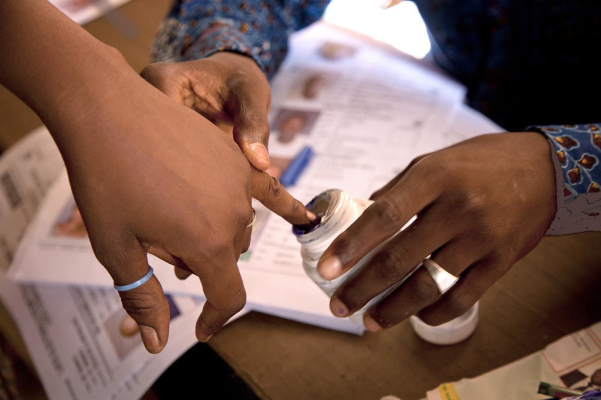Six countries will be holding both elections. Needless to say, the election calendar this year will be busy.
2022 is gearing up to be a big year for governance and democratic systems in Africa with 21 countries are set to hold elections this year. Seven countries – Angola, Kenya, Djibouti, Mali, Libya, Somaliland and Sudan – will be voting to elect a new head of state. Five countries – Republic of the Congo, Sao Tome and Principe, Lesotho, the Gambia and Chad will be deciding on who will ascend to their National Assembly. Six countries will be holding both elections. Needless to say, the election calendar this year will be busy.
But why are these elections so important? After all, voting is not a novel concept in any of the countries mentioned above. What’s arguably different this time round is what’s at stake for national and regional development. Holding well organised, transparent and fair elections could signal a change for the better for countries that have had to contend with unstable governments, weak economies and civil unrest. On the other hand, a failure to handle the electoral process efficiently could weaken trust in state institutions and entrench divisions.
Here are three main reasons why the different elections this year are so important, and what impact they may have on a national and continental level.
1. They can help restore faith and power in the State.
This is especially true for Mali. The country has had three military coups since 2012, with the events in 2020 and 2021 resulting in suspension from the African Union (AU) and the Economic Community of West African States (ECOWAS). Mali’s last elections (which were parliamentary elections) were held in 2020, but they were originally scheduled for 2018 and then 2019. The 2013 parliamentary elections were also originally slated for 2012. Both elections were delayed due to violence, kidnappings of political officials, the 2012 coup and the Malian War. Holding the presidential and National Assembly elections on time this year would break the cycle of postponed elections. It would also be the first step in re-establishing a sense of normalcy and faith in the electoral system and the country’s institutions, which have been compromised by rebellions and military coups.
2. They’re a step in securing legitimacy for an unrecognised state.
Somaliland broke away from Somalia, with the signing of the 1991 Somaliland Declaration of Independence. Since then, the territory has held three elections and has had five presidents. Despite its commitment to the democratic process and a functional political system and government, Somaliland is not officially recognised as a state, and is recognised by the United Nations as part of Somalia. There’s been increased momentum for Somaliland to gain international recognition as a state, with increased engagement between the USA and Somaliland (in the form of a congressional delegation) a USD$442 million deal with logistics company DP World to revamp its Berbera Port and a recent discussion in British parliament on recognising the territory’s independence from Somalia.
If the presidential elections take place as scheduled on 25 February, they will likely bolster the country’s efforts to gain international recognition and finally become a legally recognised state.
3. They can trigger a shift in political power
After taking over from Jose Eduardo dos Santos in 2017, Joao Lourenco’s presidency has been marked by highs and lows. Indictments have been brought against members of the dos Santos family over corruption, Angola’s economy has contracted and most recently, anti-government protests over the handling of the coronavirus and changes to the constitution. The latter is especially a cause for concern. The legislature is dominated by the Popular Movement for the Liberation of Angola (MPLA), with Lourenco seeking a second term in office and the MPLA hoping to maintain its majority in the National Assembly. There are fears that if the ruling party wins, they will continue to amend Angola’s constitution for their benefit.
For the first time, the estimated 450,000 eligible Angolans living outside the country can vote in the upcoming elections. The MPLA is looking to the diaspora vote to secure its 46-year reign as Angola’s ruling party. However, the MPLA is facing off against a coalition of opposition parties determined to counter the MPLA’s power. The coalition, called the United Patriotic Front led by the National Union for the Total Independence of Angola (UNITA), is projected to win the presidential and local elections according to independent analysts. If the opposition wins, it could signal a significant political shift in Angola, and hopefully the beginning of undoing the country’s corruption and authoritarian systems. On the other hand, if the MPLA secures a majority and Lourenco gets a second term as president, the ruling party would have more room to amend Angola’s constitution and possibly remove term limits.
The results of these elections – and all the elections to be held this year – will no doubt have an effect on the political, social and economic future of their respective countries and regions, as well as shape the leadership of Africa as a whole. Want to know more about each election as it happens? As the year progresses, we’ll keep a keen eye on developments and updates from the big elections and what their results mean for the country, region and continent.
The Africa Exponent




























